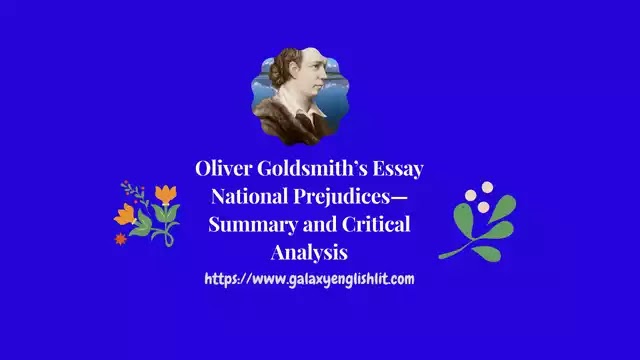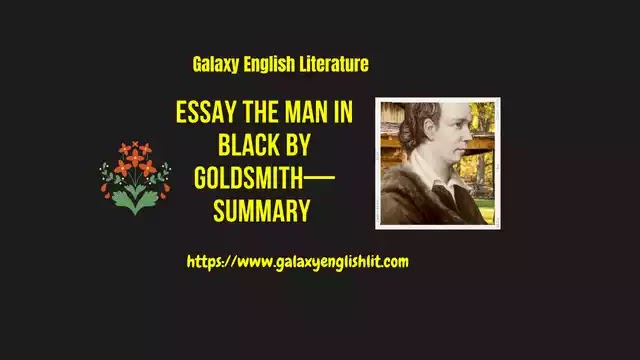Shaw's New Way of Handling Marriage and Family:
The problems of marriage, love, family and sex relations have greatly influenced and exercised the mind of George Bernard Shaw. Shaw, as a biologist, believes that procreation is the most holy work of all, and as a socialist he thinks that all work should be suitably paid for. He observes that there is the most social injustice against the women and that is they are underpaid in the industrial world and not permitted to have independent income at all for their work in the family. After making great observation, Shaw finds that mostly women are exploited within the family and this exploitation is regarded the worst form of prostitution. The institution of family rests on the foundation of fraud.
 |
| Shaw's Views on Love, Marriage, Sex and Family in Candida |
In general way, the husband thinks that he provides his wife proper security, livelihood, social Prestige and honour. But in the play, Candida, the situations are different. Shaw keeps himself away from the conventional treatment of wife and husband. In Candida, it is the wife who provides or brings comforts for the man, i.e., her husband Morell, Morell seeks relief, comfort and consolation in the company of his wife Candida. Indeed, Shaw's views on marriage and family, as expressed in Candida, are rather very strange. In the play, Morell's wife, Candida is badly entrapped in making the choice between two men, one is her husband. Morell who is a strenuous self - confident popular preacher and other is an aggressive and weak young poet who is her lover and is logically, futile and physically coward. She is inclined to her husband while making her choice because he has more weaknesses and more need of her.
Shaw's Presenting Realistic and Forceful Approach on Love, Marriage and Family:
In fact George Bernard Shaw has presented realistic and forceful views on love, marriage and family life in the play Candida. In the play, Shaw touches real aspects such as certain realities commonly outside his scope; especially the reality of the normal wife's attitude to the normal husband, an attitude which is not romantic, but it involves human sacrifice. Shaw believes that marriage which is regarded the most pious part by social institution does not confirm a long, permanent and happy companionship. He also thinks that marriage does not provide for enduring conjugal bliss. Hence no marriage is likely to be permanently happy. Next he thinks that marriage is a sort of formal arrangement which is made when the Life - Force compels man and woman to come together. Next he thinks that marriage is not an inextricable knot which may be transgressed any moment as it is a contract formed by two individuals of extremely divergent views and tendencies. Next, he thinks that marriage accentuates the disparity between man and woman. As a consequence of this, some kind of incompatibility becomes a long lasting and stable feature of marriage relations. Further, he observes that marriage is founded on false economics and false biology. Next, in his opinion marriage is inevitable, but it should not be left to the individual caprice. Next, he finds out that marriage results in economic slavery. Finally, he reaches on the conclusion that the institution of marriage is founded on a fundamental falsehood and in order to preserve it pioneers have discovered other stupendous fictions like sentimentality, respectability and decency.
Marriage - A Commonwealth or Alliance:
G. K. Chesterton shows his fully approval with Shaw's views on marriage. He observes: “Marriage is not a mere chain upon love as the anarchists say nor it is a mere crown upon love as sentimentalists say. Marriage is in fact, an actual human relation like that of motherhood, which has certain human habits and loyalties except in a few monstrous cases where it turned to torture by special insanity and sin. A marriage is neither an ecstasy nor slavery; it is a commonwealth. Kings and diplomats talk of ‘forming alliances’ when they make weddings: but indeed every wedding is primarily an alliance. The family is a fact even when it is not agreeable fact and a man is part of his wife even when he wishes he wasn’t. The twins are one flesh - yes, even when they are not one spirit. Man is duplex. Man is quadruped.”
Shaw does not oppose the marriage institution, but he exposes the hollowness of the ideals of marriage one by one. In his opinion, marriage remains practically inevitable the sooner we acknowledge this, the sooner we shall set to work to make it decent and reasonable. He, therefore, aims at making it the reasonable contract it was meant to be between man and woman.
Vital Need of Some Improvements in Marriage Institution:
After making a serious and deep observation, Shaw finds out that the marriage should be standardized and legalised, but in a reasonable manner. He advocates the liberty to divorce, as indissoluble marriages, in his opinion, are inhuman. Provisions of breaking up undesirable families are as necessary to the preservation concept of family as means of dissolving undesirable marriages are to the preservation of marriage. An improvement should be made in our domestic laws. These laws should be humanised and rationalised to make it not only harmless but also beneficial, relaxable and honourable.
The Invention of Marriage Institution for the Purpose of Procreation and Sexual Intercourse:
Having taken the views of Shaw on the institutions of family and marriage into his own observation, Sen Gupta interprets: “Shaw’s principal objection to marriage, however, not that it is based on false economics but that it rests on false biology. Marriage is the institution which society has invented and adopted for the purpose of regularising procreation. There are different forms of marriage in different societies but there is one thing common to all these marriages: it means the affiance of two persons for prolonged sexual intercourse, and sexual intercourse leads to the birth of children. Marriage and the family are based on a fundamental misunderstanding of the nature and purpose of the sexual instinct. The instinct of sex is the most violent, and sporadic. It is violent; it is necessary, it is even sacred, for the Life - Force expresses itself through it, but it is not permanent and personal. It does not require any intimacy, nor does it by itself produce any intimate, personal relationship.”
Conception of Love, Marriage and Family in Candida:
In Candida, Shaw attacks the economic system of society as revealed through the institution of marriage. Marriage is founded on a sexual contract between man and woman and the economic slavery of the latter. It is a drama of real passion and action. Candida's husband is a highly respectable member of the society. In private life, he is an ideal and devoted husband. He upholds all the virtues with which marriage has been associated. He boasts of the ideal marriage partnership he has engaged himself in. He advises Lexy Mill:
“We have no more right to consume happiness without producing it than to consume wealth without producing it. Get a wife like my Candida; and you'll always be in arrear with your repayment.”
Morell's wife is a treasure to him. But what he actually is, is gradually revealed to him through the course of the events of a normal day. He really is a parasite on his wife. She works for him like a slave to keep him happy, contented and undisturbed to carry on his duties as a clergyman and propagandist for the cause of socialism.
The play presents a novel conception of love. Sexual appeal is rejected in favour of the intellectual. Thus love is raised to a nobler plane. Morell and Candida do not form an ideal couple as they do not stand on the same intellectual level. Eugene would have been a proper husband for her. Indeed the play contains the truth of married life. It is not based on equality of the husband and wife. In other words, the two sexes do not have the same status. Man is the master. He dominates woman. Their relationship is governed by the economic factor. Woman is entirely dependent on man for her protection. Her only function is to look to the comforts of her husband and keep him away from worries.
Morell meets his foil in Marchbanks who is in love with his wife. Marchbanks exposes the hollowness Morell's ideal and calls the union of Morell and Candida most incompatible. He says:
“A woman with a great soul craving for reality, truth, freedom and being fed on metaphors, sermons stale perorations and mere rhetoric.”
Morell feels that he protects and feeds Candida. Without Candida, he is nothing. But Morell is yet to receive one more shock. He foolishly places his confidence in his wife. “When he suspects her to be in love with the poet, he says, “I thought of your goodness, of your purity. That is what I confide in.” But Candida's stark and outright reply sends waves of electric shock through his views shattering castles of Morell's false pride and illusions. She says:
“What a nasty uncomfortable thing to say to me! Oh, you are a clergyman, James: a thorough clergyman. Ah James, how little you understand me, to talk of your confidence in my goodness and purity! I would give them both to poor Eugene.”
Finally it can be seen that in the play, Shaw makes a mockery of the institution of marriage, by presenting his views directly or with subtle ingenuity. She wants the change in the marriage ideal to come through a process of evolution.





